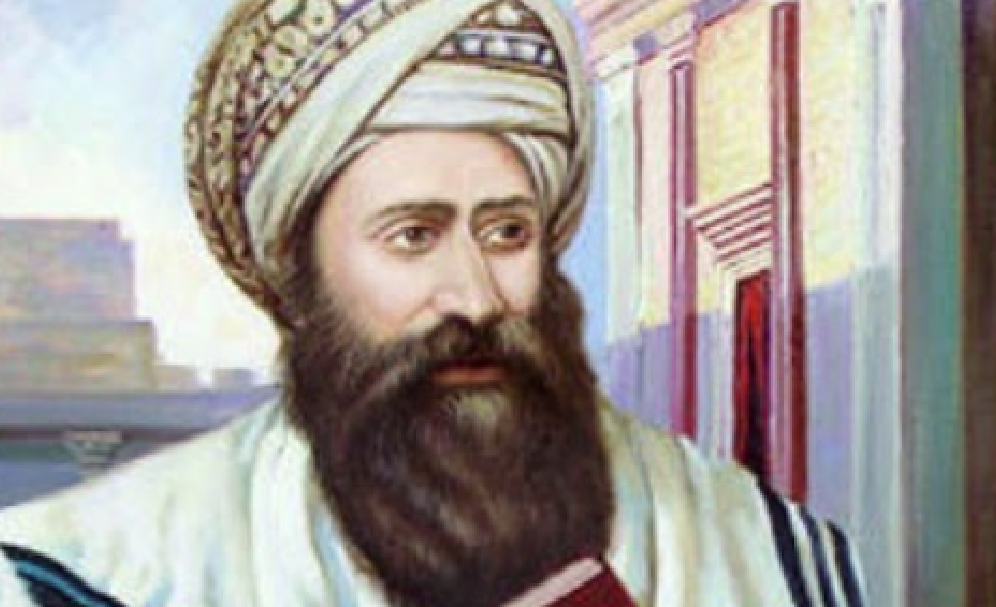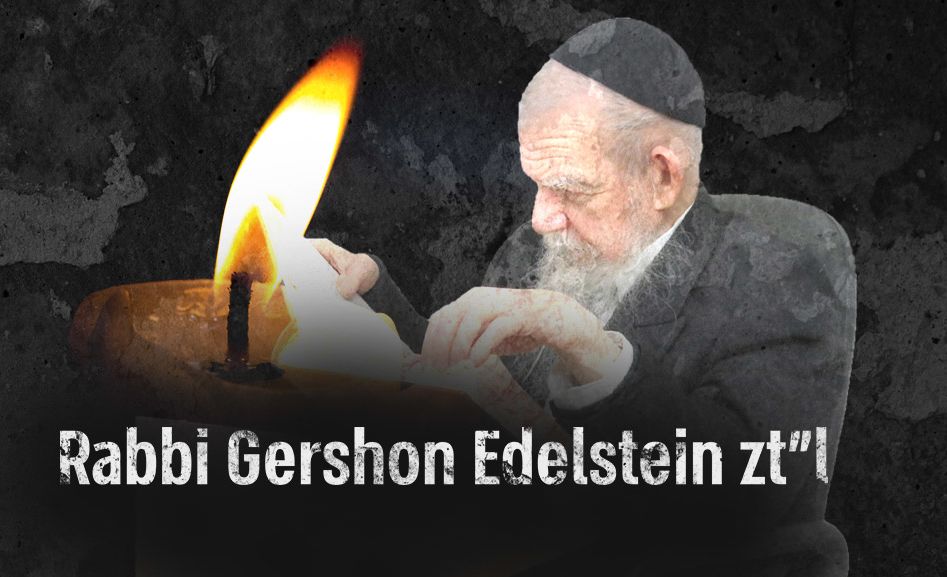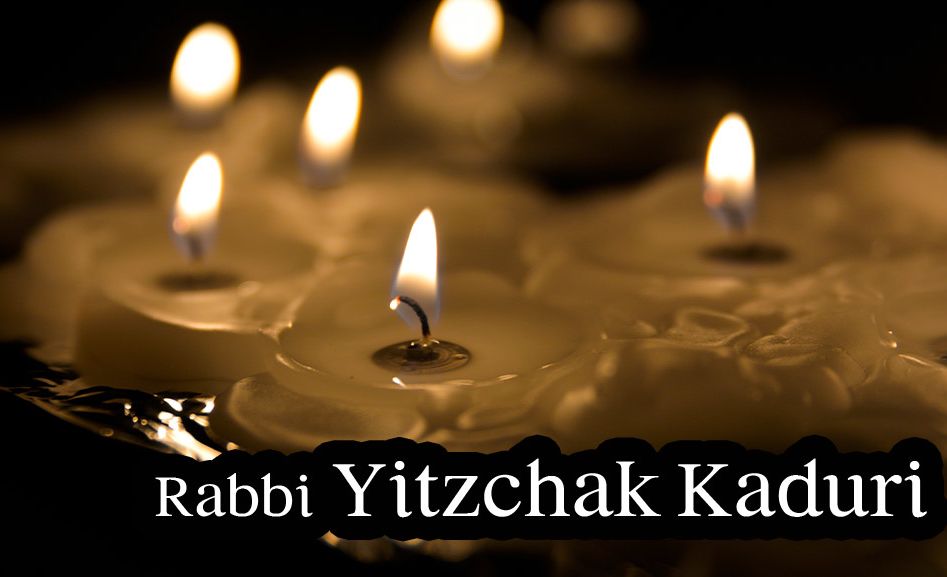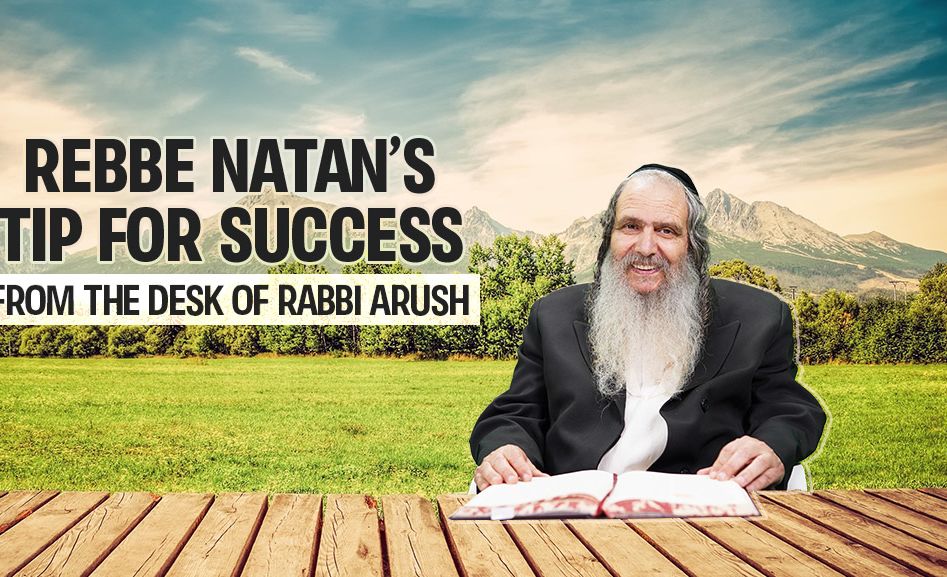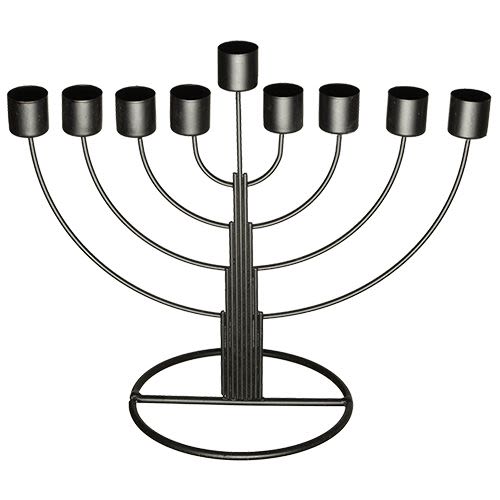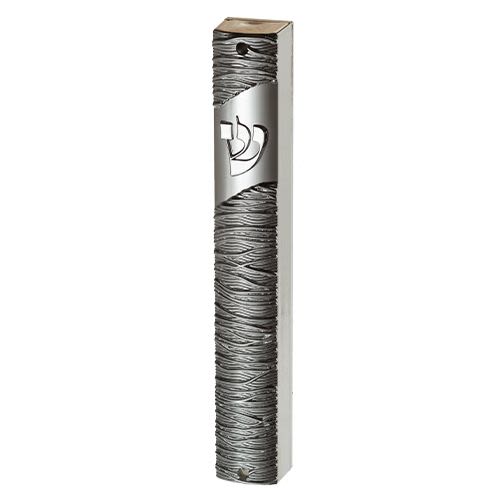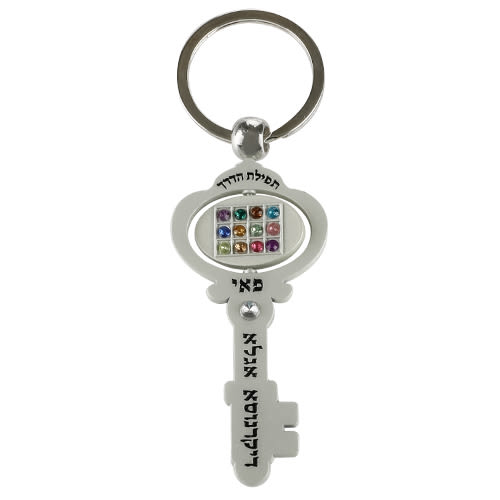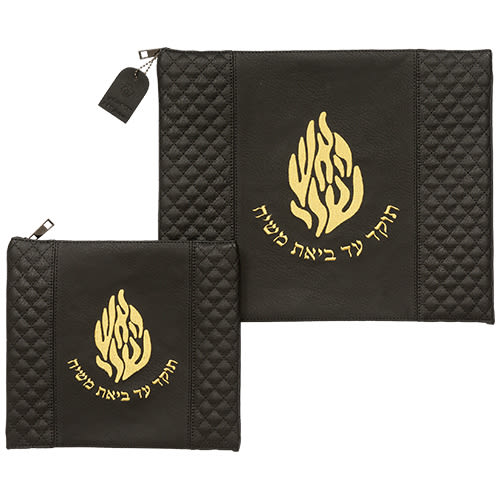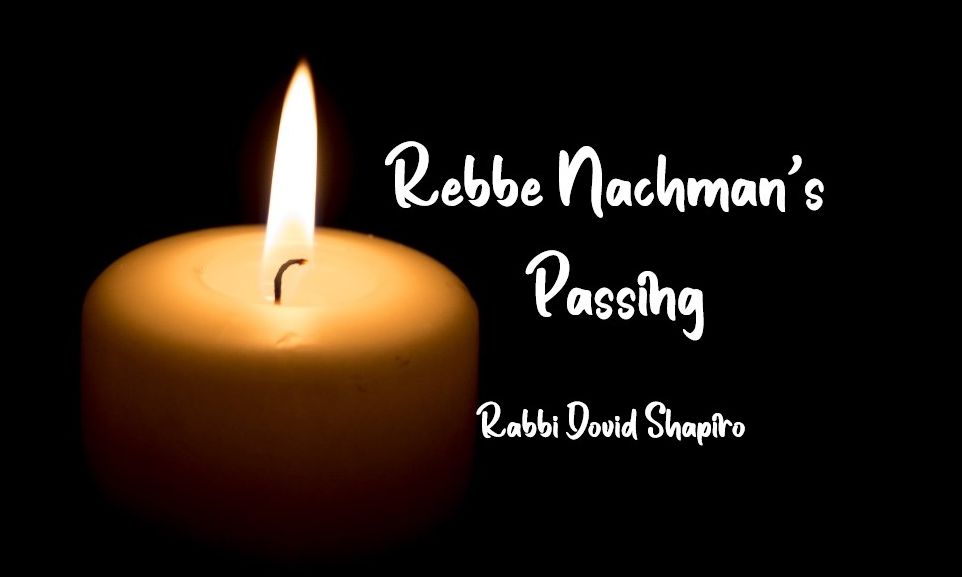
Rebbe Nachman’s Yahrtzeit (Passing)
Rebbe Nachman's yahrtzeit - the anniversary of his departure from this world - falls during Chol HaMoed Succot.

Rebbe Nachman of Breslev’s histalkut (ascent from the body) took place in Uman, a Ukrainian town in Kiev oblast, on the 18th of Tishrei, which is the second day of Chol HaMoed Sukkot, 5571 (Oct. 16, 1810).
According to his express wish, Rebbe Nachman was buried in the old Jewish cemetery, together with more than 30,000 martyrs of the Haidamack massacres of 5528 (1768). His surviving family members included his second wife, who built over his grave the original Ohel (a wooden structure to accommodate those who wished to pray nearby); his daughters Adel, Sarah, Miriam, and Chaya; and several grandchildren. According to one tradition, the Rebbe’s father, Rabbi Simcha, survived him, as well.
It is customary for Breslever Chasidim to gather together on “Chai Tishrei” in order to commemorate the Rebbe’s Yahrzeit. As is commonly the case in the Breslev community, there are no special minhagim (customs) associated with this event, other than lighting a Yahrzeit candle, giving Tzedakah (charity) in Rebbe Nachman’s memory, and engaging in the study of Rebbe Nachman’s writings.
Below is an account of the Rebbe’s histalkut:
Shabbat, 15 Tishrei, first day Sukkot, 1810
The Rebbe sat in the chair all day and did not go into the sukkah. The Chassidim took turns staying with him. In the morning, the Chassidim helped him don his tallit and he prayed sitting in the chair.
Motzaei Shabbat, 16 Tishrei, eve of second day Sukkot
The Rebbe asked to be taken from his chair to the bed. He reminded Reb Natan of the story of the Baal Shem Tov, which he had told on the way to Uman. He said, “There are many tens of thousands of souls here in Uman, which have long been waiting to bring me here.”
Before he passed away, the Rebbe said, “I have already reached such a level that I can no longer advance while clothed in this earthly body. I yearn to put this body aside, for I cannot remain on one level.”
The Rebbe alternated between sitting in the chair and lying in bed. Once, when he was sitting, he had a coughing attack and was very weak. But, in spite of his weakness, the Rebbe made a fist as if to say, “I still have strength.” The then grasped Reb M’s coat and said with a gesture, “What strength I have.”
Monday night, 18 Tishrei, October 15
Until after midnight, it was Rabbi Naftali and Rabbi Shimon’s turns to be with the Rebbe. The Rebbe then repeated what he had said Motzaei Shabbat, “Many judgments were made here; there were many martyrs.” Rabbi Naftali said, “Didn’t you say that the greatest Tzaddik could do it (i.e. rectify everything necessary) in his lifetime?” The Rebbe replied, “There are many other concepts involved.” He then gave them the keys to his chest, instructing them to burn all his manuscripts as soon as he passed away, while he was still lying on the ground. Rabbi Naftali and Rabbi Shimon were shocked to hear the Rebbe preparing to die and whispered to each other. The Rebbe said, “There is no need to whisper. I am not afraid of death. AS for yourselves, you have nothing to fear since I am going before you. It is difficult to rectify the souls of those who died before, but you have nothing to fear.”
Around one a.m., Reb Natan came in. The Rebbe was sitting in his chair. Rabbi Naftali told him about the key. Reb Natan was shocked that the Rebbe was preparing for death, and refused to believe that it was truly imminent. The Rebbe sat in silence. Rabbi Naftali then left to sleep.
From about two a. m. until daybreak, Rabbi Shimon slept on the floor in the Rebbe’s room. Reb Natan was the only one attending to the Rebbe. Reb Natan did not want to believe that the Rebbe would soon be taken from the world and was unwilling to ask him any questions. The Rebbe did not speak, but looked intently at Reb Natan . Reb Natan put the Rebbe to bed. The Rebbe said, “Slowly, slowly,” and explained that he was heavy now (because his life was leaving him).
Tuesday morning, 18 Tishrei, October 16
In the early morning, Reb Natan gave the Rebbe some tea with egg yolk (which relieves coughing). The Rebbe’s attendant awoke and came in to care for the Rebbe. Reb Natan then went to the mikveh and when he returned, the Rebbe was sitting in bed, with his tallit on, praying. He then said the blessing over the etrog and lulav and took the ARI’s siddur on his lap. He completed the Hallel prayer and said the Hoshanot in a loud voice, so that everyone in the house heard him. The others prayed in a nearby room.
After the prayers, Reb Natan passed the Rebbe’s room. The Rebbe looked at Reb Natan . Reb Natan spoke with Rabbi Yechiel, saying that he was beginning to believe that the Rebbe’s death was close and asked Rabbi Yechiel to help him overcome such thoughts. Rabbi Yechiel strengthened him. He then went back to his lodgings, rested a while, went over the last lesson and ate. In spite of his tiredness, he then returned to the Rebbe.
When he came into the Rebbe, there was a commotion in the room. The Rebbe was in a chair, but his life was draining from him. A man who had suddenly arrived from Terhovitza stood by him. More than anyone else, he saw to the Rebbe’s needs. The Rebbe had promised him long before this that he would do this. Together with the man from Terhovitza, they put the Rebbe into bed. Reb Natan held the Rebbe’s hand.
Tuesday afternoon, 18 Tishrei, October 16
In the early afternoon the Rebbe lay in bed, dressed in his best robe. He told Rabbi Shimon to arrange his clothing and wash the blood from his beard. He then lay on the bed in a free state of mind. He rolled a ball of wax between his fingers with the utmost delicacy, composing his thoughts. Then he drank some soup. Later, however, he would not eat (Ibid. 43a).
While the Rebbe lay in bed, there was an unusually strong gale which tore out rocks in the hills. It blew down the succah near the Rebbe’s house and a fire broke out in Uman. Everyone, including Reb Natan, ran to the fire, but miraculously it went out by itself before Reb Natan reached it.
Reb Natan returned to the Rebbe and stood near is bed. Many people came to be with the Rebbe in his last hour and started saying the verses in Maaver Yabok for a Tzaddik approaching death (Ibid. 43b).
The people then thought that the Rebbe had died. Reb Natan started crying and shouted, “Rebbe! Rebbe! To whom have you left us?” The Rebbe heard and lifted up his head with an expression that said, “I am not leaving you, God forbid!”
But the end came soon afterwards. The Rebbe passed from this world in a state of serenity and with the utmost composure. All those present, including the chevra kadisha, said that although they had seen people die calmly, they had never seen anything like this (Yemei Moharnot 43b).
The Rebbe thus passed away on Tuesday afternoon, the second day of Chol HaMoed Sukkot, 18 Tishrei (October 16) (Chayei Moharan 30a #7, #191; Yemei Moharnat 44a).
There was a great commotion in the room and people began crying loudly. No woman was in the room at the time of his passing to cry over him. His wife remained in the other room. His daughters had gone home after Yom Kippur, not realizing that his death was so imminent (Manuscript p. 18; Yemei Moharnat, Ibid.).
During the commotion, Rabbi Shimon quickly took the key the Rebbe had given him and burned the manuscripts as he had been instructed (Yemei Moharnat, Ibid.).
Meanwhile, they undressed the Rebbe and laid him on the floor with his feet to the door, according to custom. It was already night and it was agreed that it would not be fitting for the funeral of a great leader like this to take place before the morning (Ibid.; see Yoreh De’ah 357:2, 242:1).
Wednesday, 19 Tishrei; (October 17):
Everyone was told to go to the mikvah and afterwards they prayed. Reb Natan was asked how to perform the burial, and he replied, “Treat the Rebbe like any other Jew.” Reb Natan had not yet prayed Mussaf or made the blessing over the etrog. He sat on the ground next to the Rebbe and spoke into his ear, crying. The Chevra Kadisha then came and performed the taharah, preparing the body for burial. They wrapped him in his tallit and place the body on the table (Ibid. 44b).
There was a problem burying the Rebbe in the old cemetery since it was no longer in use. Rebbe Natan insisted, and Hirsh Ber helped arrange it through his influence (Sippurim Niflaim p. 7).
When they took the Rebbe out of the house, Reb Natan grasped his garment and helped carry him out. In these moments, he felt an overwhelming awareness the greatness of God. They made a bier out of the chair where the Rebbe had sat for his last Rosh Hashanah lesson.
Thousands of mourners attended the funeral. He was buried in the place he had chosen, among the martyrs in the old cemetery in Uman (Ibid.).
The mysterious old man was at the Rebbe’s funeral, and later he disappeared.
Reb Natan cried. Hirsh Ber told him, “You have lost the Rebbe? We have lost the Rebbe! If the Rebbe had lived, we would have repented completely and become Tzaddikim” (Parparaot LeChokhmah 215:2; Sippurim Niflaim p.7).
When the Rebbe had discussed his imminent death the previous Elul, the Chassidim had sighed and asked, “What shall we do?! With whom will you leave us?” The Rebbe then replied, “Just stay together and you will be good Jews. Not only that, but you can be Tzaddikim, for God will certainly grant me that things will be as I have always wanted. Ich hob ois gefirt, un vell ois firren! – I have accomplished and I shall accomplish” (Chayay Morharan 44a #34, #218).
(From “Until the Mashiach” by Rabbi Aryeh Kaplan, edited by Rabbi Dovid Shapiro, published by Breslov Research Institute, 1985)


